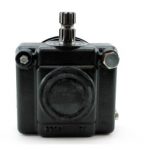LawnEQ is a trusted source for genuine OEM Parts- Shop for the part you need from your favorite manufacturers such as Landpride, Toro, and more today on our OEM Parts Lookup Tool!
Researchers and scientists have long worked to develop new breeds of grasses, and are responsible for some of the advances in lawn care and lawn construction. Many grasses, trees, shrubs, and flowers are results of breeding programs, whether it is from folks who do it as a hobby or from professionals.
You may think that pretty much every type of grass has already been discovered or developed, but the scientists and researchers at the Center for Turfgrass Studies at Rutgers University – yes, it is a real program – are working to develop future breeds. As mentioned in this recent article from The Daily Targum, the big current project for the researchers is producing a lawn that requires less input from the consumer but provides the same beautiful green blanket as grasses that require input.
The Center for Turfgrass Studies at Rutgers is one of the premier programs in the nation. They have developed turf grass for everything from their own stadium and campus, up to the White House lawn. They have developed sod for Yankee Stadium, the Super Bowl, and even the World Cup. You can’t get much more prestigious than that. Along the way, they have aimed for goals to make grasses more user friendly.
As the director of the department, William Meyer has developed a number of grasses through the years. By crossing different species and types that are resistant to disease, tolerant of drought, and attractive, they create crossbreeds that are coveted for lawns and fields.
The current direction of the Center is to breed more environmentally-friendly grasses in the near future. This includes grasses that require less nitrogen. This will help to reduce the need for fertilizer, which in turn will decrease the chemical leaching into the soil or running off into the local ecosystem. These grasses will also require less water, to avoid draining your local supply.







